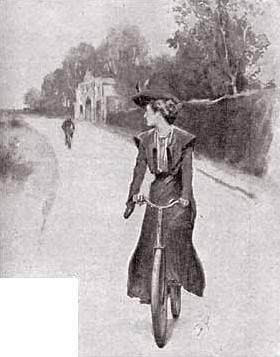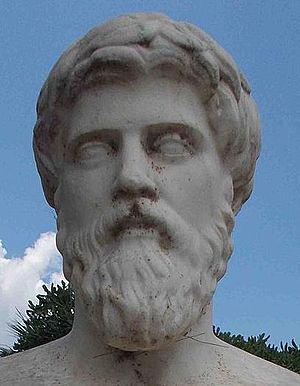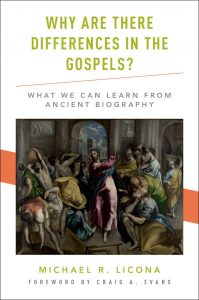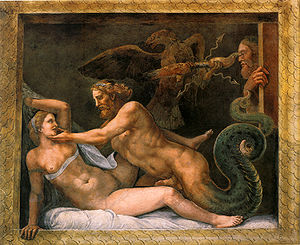With the gospels in mind and thinking of them (for sake of argument) as biographical accounts of Jesus, how can we know if an ancient biography is about a genuinely historical person or if it is about a fictional character?
Let’s leave aside for now the claims of postmodernists who argue that there is no essential difference between histories and novels, between autobiography and fictional works. Enough historians and scholars of literature, at least to my satisfaction, have knocked these arguments down.
Many of us are familiar with the analysis of Richard Burridge that concludes that the gospels are of the same genre as ancient “bioi” (I’ll use the familiar term “biography”). The responses to Burridge’s arguments by Tim and me are collated here.
Before we take up the explanation, let’s look at some extracts from ancient biographers.
Biographer #1
Here is a passage about Socrates by Diogenes Laertius:
It was thought that he [Socrates] helped Euripides to make his plays; hence Mnesimachus writes:
This new play of Euripides is The Phrygians; and
Socrates provides the wood for frying.
And again he calls Euripides “an engine riveted by Socrates.” And Callias in The Captives:
a. Pray why so solemn, why this lofty air?
b. I’ve every right; I’m helped by Socrates.
. . . . .
According to some authors he was a pupil of Anaxagoras, and also of Damon, as Alexander states in his Successions of Philosophers. When Anaxagoras was condemned, he became a pupil of Archelaus the physicist; Aristoxenus asserts that Archelaus was very fond of him. Duris makes him out to have been a slave and to have been employed on stonework, and the draped figures of the Graces on the Acropolis have by some been attributed to him. . . . .
He was formidable in public speaking, according to Idomeneus; moreover, as Xenophon tells us, the Thirty forbade him to teach the art of words. And Aristophanes attacks him in his plays for making the worse appear the better reason. For Favorinus in his Miscellaneous History says Socrates and his pupil Aeschines were the first to teach rhetoric; and this is confirmed by Idomeneus in his work on the Socratic circle. . . . .
The significance of the highlighted phrases is that they indicate that the author is writing from the perspective of an outsider attempting to interpret and draw conclusions from and piece together pre-existing sources speaking of the past. The author’s narrative is constrained by the information that has already long been in existence.
Notice especially the caution expressed in the first line: we know that the author is not going to bet his life on the information being true because he tells us that the information is “thought” to be true on the basis of inference from the documents.
Don’t get me wrong. I am not saying that such features in writing are a foolproof indicator of the factualness or genuine historicity of the subject. Obviously such phrases can be invented — and sometimes are invented — for the sake of creating verisimilitude for a fictional narrative. And such a presentation alone does not tell us with complete certainty that the person found in the sources was truly historical.
What we can establish from these literary indicators, however, is that on the face of it the author presents his work as an effort to relay to readers what is purported to be historical; furthermore, the author opens up to readers the means by which they can verify what he writes.
As I wrote in another post recently,
In her book Autobiographical Acts, Bruss formulates a number of interrelated “rules” . . . The rule that applies to this communication process on the author’s side reads:
“Whether or not what is reported can be discredited, . . . the autobiographer purports to believe in what he asserts.”
On the reader’s side, the rule-abiding expectation that the report is true implies a freedom to “check up” on its accuracy by way of appropriate verification procedures.
In this perspective, the truth claim or autobiography in no sense implies the actual truth of an autobiographer’s statement. (Dorrit Cohn, 1999, The Distinction of Fiction, p. 31, italics original, my formatting)
So it is worthwhile asking why we find no comparable expressions in the earliest gospels, the Gospels of Mark and Matthew. I should say “any of the canonical gospels” since the prologue to Luke and the eyewitness claims in John create special problems that have been discussed in other posts. Moreover, we will see that all four canonical gospels, on the contrary, are replete with perspectives and expressions that indicate fiction.
Biographer #2
Continue reading “One Difference Between a “True” Biography and a Fictional (Gospel?) Biography”
Like this:
Like Loading...

 In his recent book,
In his recent book, 
 [Edit: When first published, this post credited Michael Bird instead of Michael Licona for this book. I can’t explain it, other than a total brain-fart, followed by the injudicious use of mass find-and-replace. My apologies to everyone. –Tim]
[Edit: When first published, this post credited Michael Bird instead of Michael Licona for this book. I can’t explain it, other than a total brain-fart, followed by the injudicious use of mass find-and-replace. My apologies to everyone. –Tim]
